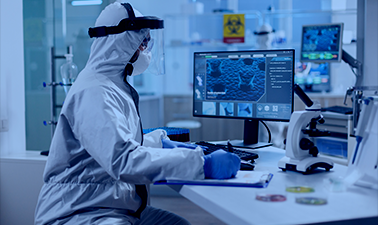Course Overview:
In the era of data-driven research, biostatistics plays a vital role in shaping the future of healthcare and medical research. Biostatistics provides the tools and methodologies necessary to interpret complex data, design experiments, and make informed decisions that impact public health. This online course, offered by Knowture, is designed to introduce postgraduate students from around the world to the core principles and applications of biostatistics in the field of health sciences.
Through this comprehensive course, students will gain a strong foundation in statistical concepts and their practical applications in clinical trials, epidemiological studies, and public health research. The course combines theoretical understanding with hands-on experience, empowering students to confidently analyze and interpret data, apply statistical software, and effectively communicate their findings in scientific writing and presentations.
Who Should Enroll:
This course is designed for postgraduate students in fields such as medicine, public health, biomedical sciences, epidemiology, and healthcare research. It is also ideal for professionals seeking to enhance their data analysis skills and knowledge of biostatistics, including healthcare professionals, clinical researchers, and policy makers.
Key Learning Outcomes:
By the end of this course, students will:
- Develop a solid understanding of biostatistical methods, including probability, hypothesis testing, and regression analysis.
- Gain the ability to design experiments, surveys, and clinical trials that generate reliable and valid data.
- Learn how to analyze complex datasets using statistical software such as R and SPSS.
- Master the interpretation of biostatistical results in the context of healthcare and clinical research.
- Understand how to apply statistical methods to real-world health problems, improving decision-making and patient outcomes.
- Enhance their ability to effectively present and communicate statistical findings in academic and professional settings.
Course Structure:
The course is divided into five modules, each focusing on a different aspect of biostatistics. Students will engage with video lectures, hands-on assignments, interactive discussions, and real-world case studies that reinforce learning through practical application.
Introduction to Biostatistics and Descriptive Statistics
This foundational module introduces the basic concepts and importance of biostatistics in healthcare research. Key topics include:
- The role of statistics in medical research and public health decision-making.
- Types of data: nominal, ordinal, interval, and ratio.
- Descriptive statistics: Measures of central tendency (mean, median, mode) and variability (range, variance, standard deviation).
- Graphical representation of data: Histograms, bar charts, pie charts, and scatter plots.
Students will practice organizing and summarizing data, using visual tools to understand the distribution and trends within datasets.
Probability and Inferential Statistics
Probability forms the basis of statistical inference. In this module, students will:
- Learn the principles of probability theory and its relevance to medical research.
- Understand the concepts of random variables, probability distributions (normal, binomial, Poisson), and sampling distributions.
- Explore inferential statistics: Confidence intervals and hypothesis testing.
- Apply hypothesis testing to real-world scenarios, including tests for means, proportions, and variances (t-tests, chi-square tests).
This module emphasizes the importance of inferential statistics in drawing conclusions from sample data and generalizing results to larger populations.
Regression Analysis and Correlation
This module focuses on the relationships between variables and how to model them using regression analysis. Topics covered include:
- Simple and multiple linear regression models.
- Logistic regression for binary outcomes.
- Correlation coefficients: Pearson and Spearman correlations.
- Identifying confounding factors and adjusting for them in regression models.
By the end of this module, students will have the skills to use regression analysis to predict outcomes and assess the strength of associations between variables.
Clinical Trials and Experimental Design
Designing robust clinical trials and experiments is critical in healthcare research. In this module, students will:
- Understand the key principles of experimental design, including randomization, blinding, and control groups.
- Learn how to calculate sample sizes and power to ensure study reliability.
- Explore the different phases of clinical trials and the ethical considerations involved.
- Analyze real-world case studies of successful and flawed trials, learning from both.
This module equips students with the knowledge to design effective clinical trials that yield valid, reliable, and reproducible results.
Advanced Topics and Real-World Applications
The final module delves into advanced biostatistical techniques and their application in real-world health research. Topics include:
- Survival analysis: Kaplan-Meier curves, log-rank tests, and Cox proportional hazards models.
- Meta-analysis: Combining data from multiple studies to draw more accurate conclusions.
- Handling missing data and conducting sensitivity analyses.
- Ethical considerations in data analysis and reporting.
By the end of this module, students will be able to apply advanced statistical methods to complex healthcare problems, ensuring they are prepared for real-world research scenarios.
Interactive Learning Experience:
Knowture’s platform offers an engaging and interactive learning experience. Throughout the course, students will:
- Participate in live Q&A sessions with biostatistics experts who work in academia and healthcare industries.
- Engage in discussion forums with peers from around the world, sharing insights and challenges in biostatistics applications.
- Complete hands-on assignments that involve real-world datasets and statistical software tools, allowing students to put theory into practice.
Certificate of Completion:
Upon successful completion of the course, students will receive a Certificate of Completion from Knowture. This credential serves as a valuable addition to any healthcare or research professional’s portfolio, demonstrating their expertise in biostatistics and their ability to contribute to data-driven decision-making in the field of health sciences.
Why Take This Course on Knowture?
- Expert Instruction: Learn from leading biostatisticians and healthcare researchers.
- Global Network: Connect with postgraduate students and professionals from around the world.
- Flexible Learning: Access course materials at your own pace, making it easy to balance studies with professional and personal commitments.
Enroll Today:
Master the art and science of biostatistics with Knowture. Enroll now to gain the skills and confidence to analyze complex healthcare data and make informed decisions that will impact the future of medicine and public health

